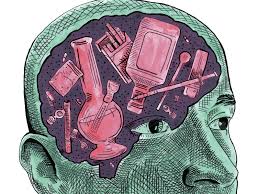Addiction is a complex and debilitating disease that affects individuals in various ways, leading to a wide range of physical, emotional, and psychological consequences.
The effects of addiction can be devastating, not only to the individual who is struggling with addiction but also to their loved ones and the community as a whole. Understanding the effects of addiction is crucial in order to effectively address and treat this widespread issue. One of the most noticeable effects of addiction is the physical impact it has on the body.
Substance abuse can lead to a multitude of health problems, including liver disease, cardiovascular issues, respiratory complications, and neurological impairments. For example, individuals who are addicted to drugs or alcohol may experience liver damage, increased risk of heart attacks, lung disease, and memory loss. These physical consequences can be life-threatening and significantly decrease one’s quality of life. In addition to physical health issues, addiction also has a profound impact on mental and emotional well-being.
Substance abuse can lead to mood swings, anxiety, depression, and other mental health disorders. Individuals who are struggling with addiction may also experience feelings of guilt, shame, and isolation, which can further exacerbate their addiction. Moreover, addiction can impair one’s ability to make rational decisions, leading to risky behaviors and poor judgment. Furthermore, addiction can have detrimental effects on one’s relationships and social life.
It is crucial for individuals struggling with addiction to seek help and support in order to address these consequences and work towards recovery. Treatment options, such as therapy, medication, and support groups, can help individuals overcome their addiction and rebuild their lives. By understanding the effects of addiction and taking proactive steps towards recovery, individuals can improve their health, relationships, and overall well-being.























